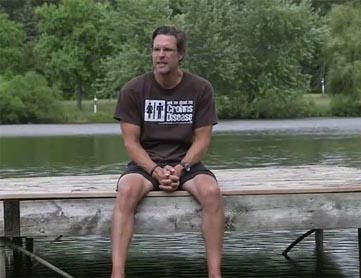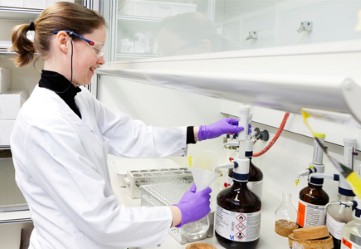Clinical Trials
Helping Others by Contributing to Medical Research
All about clinical trials
- Clinical trial overview
- Terms you should know
- Phases of clinical trial
- Diversity in trials
- Patient Perspective(s)
What is a Clinical Trial?
A clinical trial, also called a research study, is a scientific evaluation that helps medical professionals learn about an investigational medication or vaccine. But there’s much more to a clinical trial than just that. To find out what we mean, watch this short video that will:
- • Describe a clinical trial in more detail
- • Explain investigational medication
- • Give you an idea of what it’s like to participate in a clinical trial
What You Can Expect To Happen In A Clinical Trial
Clinical trials are rarely the same. They can last from weeks to years, study different doses of a medication, or even compare multiple medications at once. While the details change, all trials are structured in a similar way. Typically, there are four main parts of a trial, with each part serving a different purpose.
-
Screening
Before you can join a trial, the trial doctor and staff must determine if you meet the requirements to participate and you will need to sign an Informed Consent Form (ICF). To do this, they will conduct a number of tests and assessments to see if you qualify.
-
Enrollment
Once you complete screening and it’s determined that you qualify, you will have the option to enroll in the trial. If you choose to enroll, you will begin to participate in the trial.
-
Investigational Treatment Phase
In this part of the trial, you will have study visits and take your assigned trial medication. The number of visits and length of time you receive trial medication will depend on the specific trial. While you’re receiving investigational medication, you will attend clinic visits and undergo tests and assessments.
-
Follow-Up
Once Treatment ends, you will enter Follow-Up. You won’t take any investigational medication, but you may continue attending clinic visits. Additionally, the trial doctor and staff will stay in touch with you to continue monitoring your health. The length of time you spend in Follow-Up will depend on the specific trial.
How Do You Know If You Can Be in A Clinical Trial?
Each clinical trial has a specific set of eligibility criteria that you must meet before you can join. Most trials will require you to be in a certain age range and have a specific disease or condition.
Here is an example of eligibility criteria:
- • 18 years of age or older
- • Diagnosed with type 2 diabetes
- • Taking medication for type 2 diabetes
Prior to joining a trial, the trial doctor and staff will review the eligibility criteria with you.


